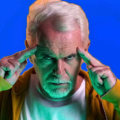You're probably familiar with “mentalism as performance art”, popularized by famous programs like Psych and The Mentalist, but did you know that “mentalism used to be a formal branch of academia? Mentalism once referred to a type of psychology that helped bring the science of human thought and emotion to the forefront of public discussion. Psychology is the study of mind and behavior from a variety of perspectives. One such perspective is mentalism, which focuses on mental processes in. In philosophy, mentalism refers to a set of ideas that hold that only the mind represents reality.
In this way, all objects of the external world would exist as aspects of consciousness, or rather, all objects are mental in themselves. An example of a theory based on this paradigm is the philosopher Noam Chomsky's famous concept of generative grammar because his work emphasizes the modularity of the mind. Since Geller was publicly exposed for using common mentalism tricks, most modern mentalists claim to be psychic artists rather than individuals who possess authentic psychic abilities. Mentalism is a part of the field of magic that states that phenomena in the physical and psychological spheres are performed by magicians who supposedly possess highly developed intuitive and mental powers.
Led by famous mentalists such as John Randall Brown, The Amazing Kreskin, Derren Brown and yes, even the infamous Uri Geller, mentalism has evolved over the years to include various psychological presentations such as mind reading, predicting the future, telepathy, cold reading, hypnosis, the exploits of memory, mind control, telekinesis and more. Mentalism is classified as a branch under magic and mentalists use various skills to surprise the audience. However, some mentalists have honed their abilities to a point where their audiences truly believe they possess some kind of psychic powers or otherworldly mental abilities. A mentalist can perform a variety of tricks that convince the audience that she has extreme mental powers.
The journey to becoming a mentalist needs constant practice, and finding the right mentor can be difficult if you're just starting to learn mentalism. A mentalist is a practitioner of mentalism who uses technical skills, psychological subtleties, disorientation, hypnosis, cold reading, and spectacle to demonstrate what appears to be extraordinary mind reading, clairlecture, foresight, and telekinesis. Modern performance mentalism actually uses both the classical psychology of mentalism and behaviorism to help the performer “read the mind of his subject through observation and intimate knowledge of how the mind works. For starters, the most recommended texts on mentalism that you can consult are Practical Mental Magic by Theodore Anneman, Mind Reader by Lior Suchard and Tricks Of The Mind by Derren Brown.
While magic and mentalism may seem very similar, many purists would argue that mentalism is actually not magic at all. On the other hand, mentalism in psychology involves those fields derived from this science that try to explain mental processes, which implies introspection, perceptions, sensitivity, understanding, etc. On the contrary, mentalism is a theory based on the perceived power of thought processes, learned through experience or through learning with an experienced mentalist.






